Office for Research Celebrates Women's History Month

Women hold prominent roles in research and leadership positions across the Rutgers research enterprise. The Office for Research is excited to share the stories of women who have set the standard for Rutgers’ excellence.
The women highlighted in this story are experts in their field of work, from women's health to forensic science, and on the other side of the research administration ecosystem. Some began their careers as researchers and now advise and support researchers in areas such as sponsored awards and compliance.
We thank them for sharing their experiences, wisdom, and advice through their inspiring answers to our questions.
Accordion Content
-
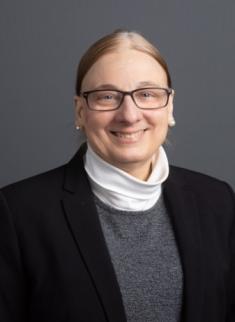
Professor of Obstetrics & Gynecology and Medicine
Associate Dean for Women's Health
Co-Director, Women's Health Institute (WHI)
Medical Director of the PROUD Gender Center of NJ
Medical Director of the NJ Commission on Women's Reentry
Chair of Health Committee
Rutgers Robert Wood Johnson Medical School
Rutgers HealthWhat is the focus of your research and its potential impact?
I am a firm believer that research is optimally carried out when it is done as a team. I’m very fortunate to be working with amazing teams who are focusing on many projects to improve the health and wellness of all of us, with a focus on women. One example is the microbiome research that I’m doing with the Rutgers University Microbiome Program (RUMP)---with one research protocol correlating the endometrial microbiome to irregular uterine bleeding and endometrial pathology. An important example of how these results can be utilized is identifying the microbiome linked to endometrial hyperplasia and endometrial cancer so that better preventive measures can be prescribed before there are pathologic uterine changes.
What and/or who inspired you to focus on this particular area of research?
Although my research has/does involve many aspects of women’s health, including menopausal issues, sexual functions concerns, and vaginal health, to name a few, the emerging data on the microbiome and its impact on wellness are clearly showing the health care world that this is an area that more research attention must be focused on.
Who have been your mentors/role models, and what and/or who inspires you now?
My original mentor and role model, who always was asking probing research questions on how to better the health of all women, especially underserved and Black women, was my professor at the University of Pennsylvania while I was both a medical student and Ob/Gyn resident. Her name is Dr. Helen Dickens, a trail blazing physician who was the first Black woman accepted into the American College of Surgeons in 1950. She encouraged all of us on her health care team to never accept the status quo, especially when it can be improved. She further spread the message to engage in research that will improve the health and well-being of all of us. Now, I am fortunate to have role models in the area of the microbiome – Rutgers professors Dr. Martin Blaser and Dr. Maria Gloria Dominguez. Both also always question how we can improve wellness, how we can improve health. Dr. Dominguez is especially important to me as a role model, as much of her research centers on maternal and fetal wellness, and the ways that we can improve the well-being for both the mothers/parents and their babies.
What has your experience been like as a woman working in your field of research?
There is no way that anyone, especially women early in their careers, can move ahead in research and discovery without having the support of very involved mentors. And it is also important to be able to join established research teams. However, what I have also found as a woman is that it requires actively asking to be included. And, that there will be times when a particular research door does not open and remains locked. But to me, that has always meant that I had to/have to go to another research door.
How would you advise any student who wishes to pursue a career in your field of research?
It’s ok to start out in the research field by focusing on research questions that only require review of the literature and then writing up the findings from the review as an abstract and presenting it as a poster or oral presentation at a local, state-wide or national meeting. In this way, the student not only gets a foundation of knowledge regarding how various research protocols were carried out, but also by presenting them at various conferences, they get to network with many other researchers from different institutions.
What more could be done to improve diversity, inclusion, and equality within your field of research?
To get individuals involved, start by giving DEI students an opportunity to participate in a research protocol. For example, at Rutgers Day 2024, many of the students who my colleagues and I interact with have been offered the opportunity to take part in a proposed research protocol on the microbiome that will be carried out on that day. In order to be part of the research, the students will be taking the IRB prerequisite modules, which also will introduce them to research. So, not only will they be taking part in a research protocol, but also will be learning about the IRB.
How can the academic sector enhance and improve opportunities and the working environment for researchers like you?
At Rutgers, we are very fortunate to have many welcoming researchers and research teams to collaborate with. Continuing this institutional support of research benefits each one of us, regardless of where we are in our professional career.
-
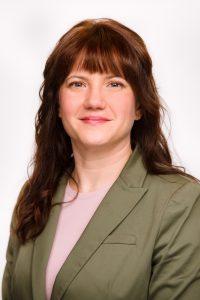
Henry Rutgers Chair and Associate Professor of Chemistry
Rutgers CamdenWhat is the focus of your research and its potential impact?
I am a forensic scientist and researcher. Forensic scientists take on two roles: that of generating data from evidentiary items and that of assigning value or meaning to the findings. Our research, therefore, aims to support the forensic DNA discipline by designing systems and methods that generate data that are representative of the evidence, and building systems that evaluate that data. These tools are useful in cases where traditional techniques were unsuccessful.
What and/or who inspired you to focus on this particular area of research?
I had many mentors along the way. The first was my high school teachers Geri Salinitri and Jim Byrne. Geri suggested I apply to a forensic science program, while Jim sparked my interest in chemistry. Once I entered the field of forensic science, I was introduced to the world of forensic DNA analysis by Carl Mauterer, Angelo Della Manna, and the late Sue Rogers. As I matured in the field, Robin Cotton, Charlotte Word, and John Butler became important mentors.
Who have been your mentors/role models, and what and/or who inspires you now?
Today I work with academic, industry, and government colleagues and students who continue to inspire and teach me. My academic colleague, Desmond Lun, is a master problem-solver and I try to absorb as much from him as I can. Ken Duffy inspires me to think deeply about the problems we tackle. Crime lab colleagues show me that the forensic discipline is awash is (in?) grand challenges deserving of research efforts and we work together to try and solve them. My students also show me what a bit of tenacity can do. Each day I am inspired by those around me, and I try to absorb as much information and knowledge as I can from them.
What has your experience been like as a woman working in your field of research?
The field has many bright women working in it, and I enjoy learning from them. Most of my mentors, for example, were women and for that I am ever grateful.
How would you advise any student who wishes to pursue a career in your field of research?
I advise students get an undergraduate degree in one of the sciences (e.g., biology, chemistry, biochemistry, computer science, math, data science) and then, if they want to pursue graduate school, look for Master of Science or PhD in forensic science programs that have a strong research presence. I also tell students to go to the AAFS (American Academy of Forensic Sciences) job page and explore what skills are listed for each job. Typically, this gives them a good overview of what labs might expect when looking to fill a position. Also, one can become involved in the field as a student by becoming an AAFS or NEAFS (North Eastern Association of Forensic Sciences) student member and attending local and national conferences. These organizations often carry student scholarships, too. There are numerous local conferences (for example, NEAFS is in Atlantic City, NJ this year). Internships are available at the FBI, National Institute of Standards and Technology, and many local agencies take interns. CSAFE has free online seminars, as does RTI International. YouTube also has some good videos!
What more could be done to improve diversity, inclusion, and equality within your field of research?
I am a firm believer in decreasing barriers to skill building. One way of supporting skill building is accomplished through independent research or projects that give new scientists the time and resources to acquire these skills. By building an infrastructure that supports everyone and by giving everyone the opportunity to flourish, we enhance our outcomes. Some practical examples include paying student researchers for their time so they are given the freedom to evolve in the sciences, supporting their independent inquiries through the provision of student-based research funds, and supporting their travel to conferences so they can engage with a broad and diverse group of scientists able and willing to support them. I also feel we need to build the infrastructure that supports independent inquiry. When I say infrastructure, I mean build methods and practices that are not competitive as these require time that some students may not have. Rather, we would seek to build supports that all students and scientists have access to. One example is to give every student in a research course basic universal project funding.
How can the academic sector enhance and improve opportunities and the working environment for researchers like you?
Acknowledge that time is the researcher’s most valuable non-renewable resource. Time to study, to think, to write, to experiment, etc., is exhaustible and is always in tension with the competitive grants and applications writing process. Though this will likely always be a part of our research culture, I advocate we re-think this paradigm and try to make funding channels efficient.
-
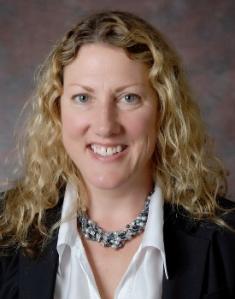
Assistant Vice President, Sponsored Programs, Policy, and Training
Rutgers Office for ResearchWhat is the focus of the Office for Research enterprise you lead and what is your biggest achievement?
I oversee the OfR’s Research and Sponsored Programs (RSP) department, which facilitates the submission of sponsored programs proposals, award intake and initial set up, outgoing subaward negotiation and set up, and post-award non-financial management. RSP personnel serve as authorized organizational representatives to sponsors on behalf of Rutgers and ensure that proposals and awards comply with sponsor and university policy and regulations. My biggest achievement is the continual evolution of RSP to improve performance and provide excellent customer service to all of Rutgers researchers. Major achievements include:
- the implementation of an electronic proposal submission system (RAPSS) that created a fully electronic (paperless) workflow and transparency for the Rutgers research community;
- creation of the SPACE educational program for central office and school/departmental research administrators;
- restructuring of RSP over several years to increase efficiency, optimize resources, and create a pathway for professional growth within the unit.
What or who inspired you to focus on your area of work?
I began my professional life as a cancer researcher, but during my post-doctoral fellowship, I was inspired to enter the technology transfer field through my interactions with a Vice President at Fox Chase Cancer Center in Philadelphia. I left the bench and began working in university technology transfer at the University of Pennsylvania and later at Rutgers. At Rutgers, I was given the opportunity by Dr. Michael Breton, former associate vice president for research, to move into research administration as a special projects' director. I never looked back. Working in research administration has given me many opportunities to contribute to the research enterprise in significant and interesting ways and has afforded me ample opportunities for professional growth and personal fulfillment.
Who have been your mentors/role models, and what and/or who inspires you now?
I have been fortunate to have several role models and mentors. These include Dr. Michael Breton (former associate vice president for research at Rutgers), Dr. Kathleen Scotto (vice chancellor for research at Rutgers Health), Dr. Terri Kinzy (former vice president for research at Rutgers), José Román (current vice president for research administration), and many of my Rutgers colleagues from whom I learn so much and who are always ready to help and provide advice.
What has your experience been like as a woman working in your field?
Research administration is a field that welcomes everyone; it is truly gender neutral. In fact, many traits typically labelled as “female” – ability to organize, multi-task, and nurture stressed individuals – are key traits for the successful pre-award research administrator. The field affords many opportunities to grow and expand one’s capabilities, regardless of gender.
How would you advise any student who wishes to pursue a career in your field?
For an undergrad student wishing to pursue a career in this field, I would suggest first that they finish their degree. This will give them an edge in the job market and will afford them more options for positions and promotion. If they are truly interested in exploring the field, they can volunteer part-time in a central research office or departmental business office or obtain a work study position to gain some experience. There are formal MS programs for those interested in pursuing a degree. There are also many job opportunities within universities for entry-level positions that allow one to learn and grow in the field. Good organizational and critical thinking skills and the ability to articulate complex concepts are extremely important. Perhaps most important of all is the desire to learn the field. Hiring managers want to see people that are energetic, engaged, and eager to learn.
What can be done to increase diversity and inclusion in your field?
The field of research administration is fairly diverse. To increase the involvement of under-represented groups would likely require the creation of specific programs to attract people to the field. Once in the field, people need to feel welcomed and valued and able to excel based on their merits and accomplishments.
How can the academic sector enhance and improve opportunities and the working environment for people in your field?
People within research administration need to be treated as professionals. These jobs are very esoteric and require specialized knowledge and a broad understanding of the research life cycle, including a multitude of policies, guidelines, and complex regulations. At different times, these individuals must analyze and interpret complex rules and regulations, enforce policy and process, serve as project managers, and provide technical and emotional support to their clients. Their contribution to the research enterprise should be recognized and valued by their leaders and their clients. Senior vice president for research Michael Zwick’s vision of OfR staff as partners in the research enterprise helps enforce the narrative that OfR staff are valuable professionals.
-
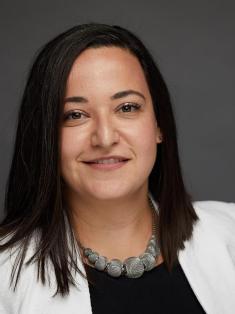
Assistant Vice President for Research Regulatory Affairs
Rutgers Office for ResearchWhat is the focus of the research enterprise you lead and what is your biggest achievement?
I lead the Research Regulatory Affairs (RRA) team within the Office for Research. RRA is responsible for ensuring the ethical and compliant conduct of research at our university. This includes oversight of Research Integrity, Export Compliance, the Institutional Review Board (IRB), and the Human Research Protection Program (HRPP). Our team is dedicated to fostering a culture of responsible research conduct for all Rutgers researchers, ultimately building public trust in research endeavors.
My proudest accomplishment is building a leadership team that consistently empowers others to reach their full potential. During a recent retreat with directors and managers, the team created a guiding principle: “We are Facilitators of Greatness. We believe in our collective power to inspire, innovate, and motivate each other, as well as our teams. We cultivate an environment where each team member's unique talents and contributions are nurtured and recognized, fostering a culture towards success and shared greatness.” Witnessing their growth and dedication is incredibly rewarding.
What or who inspired you to focus on your area of work?
While I began my career as a public health policy researcher, I craved exposure to diverse scientific disciplines. Research compliance offered a fascinating window into a kaleidoscope of studies across various disciplines. My transition to clinical compliance over 15 years ago involved closely working with research administrators funded by the Department of Defense seeking IRB approval for the first face transplant led by world renowned micro-surgeon Dr. Maria Siemionow.
Witnessing the courage of Connie Culp, a domestic violence survivor who received a partial face transplant in 2008, profoundly impacted me. Supporting her story underscored the critical role of ethics in research and medicine. Even amidst hardship, grief, and trauma, we can contribute to healing humanity.
Who have been your mentors/role models, and what and/or who inspires you now?
My grandmothers instilled in me two core values: a nurturing spirit and a commitment to lifelong learning. As a young child, I spent entire summers months with my Saftas (Hebrew for grandmother). Safta Yona, a Holocaust survivor, believed in elevating women and young girls in terms of opportunities. She valued education and the capacity for lifelong learning. Wherein woman at this time were rarely provided the option to lead, she rose to the rank of superintendent of schools in her city.
My paternal grandmother, Safta Fedora, went into hiding as a child during the Holocaust and she regularly reminds us of losing any opportunity to learn formally beyond an 8th grade level. Nonetheless, after the war and while raising a family, she taught herself to read in five languages. To this day, at 98 years old, she inspires me to continue reading and learning. She reads in five languages and even assigns me novels to read. What these women have shown me is that out of tragedy, there is always hope for humanity. It does not get easier, you get stronger. We can envision and pursue a future that champions and empowers the next generation of women.
What has your experience been like as a woman working in your field of research?
National data confirms the persistent gender disparities in many scientific fields. The gender pay gap, loss of promotion opportunity exacerbated by the pandemic and the societal biases against working mothers remain challenges in many workplaces, including higher education. These disparities are even greater for women of color who are building careers in research. When women face these challenges, we must find champions in the organization committed to elevating our voices. I have been grateful to find many champions who believed in me.
Within academia, terminal degrees often signify credibility. Without one, I had to find innovative ways to demonstrate my value. Leaders like the associate vice president for research administration Dr. José Román, recognized that potential lies in experience and integrity. This experience motivates me to create those spaces in research administration and secure opportunities to empower future colleagues. One of my mottos is ‘remember never underestimate your abilities and be your own greatest advocate.’
How would you advise any student who wishes to pursue a career in your field?
Explore, explore, explore! While there are very few direct academic pathways to research compliance, I encourage any student currently involved in research to consider research compliance. The first steps might include 1) enrolling in a micro credentials for Research Administration such as the Office for Research - Sponsored Programs Academy for Continuing Education (S.P.A.C.E.) or 2) spend time exploring the career centers at a variety of professional organizations for Research Administration. The following professional organizations all have resources and scholarships for students and junior professionals seeking to explore Research and Healthcare Administration: PRIMR, NCURA, HCCA, SCCE, SRA
What more could be done to improve diversity, inclusion, and equality within your field?
There are many approaches that one could use to improve inclusion and equity in Research Administration. It would be unwise to assume this can be fully explored here. However, one of the areas we have committed to within RRA is self-exploration of our own inherited bias and its impact on research reviews. We have run several inclusion workshops for our team members. Those include an “Allies and Advocates Workshop” focusing on LGBTQIA issues in research and another workshop entitled “Inclusive Research: Person with Disabilities in Research,” allowing research administrators to explore strategies for accessibility in research.
Additionally, we are developing a Community Voice Board that will serve as a resource to the IRB to directly address community and inclusion concerns in research design.
How can the academic sector enhance and improve opportunities and the working environment in your field?
As leaders, we have the ethical obligation to recognize everyone's humanity and nurture, every day, an environment where our colleagues can bring their entire authentic self to work. I have always been impressed when an organization is committed to executive leadership development, specifically geared at influence, management, and leadership skills. Even better is when organizations make these programs available to all levels of staff and can encourage widespread inclusion in these programs.
-
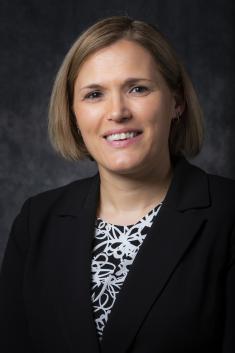
Executive Director, Technology Transfer
Rutgers Office for ResearchWhat is the focus of the research enterprise you lead and what is your biggest achievement?
Technology Transfer is the unit within the Office for Research that oversees the intellectual property protection, marketing, and licensing of Rutgers innovations. Our biggest achievements are when we are able to assist in translating the great research done at Rutgers into products and services that benefit society. There are numerous examples that span across all different technological areas and disciplines.
What or who inspired you to focus on your area of work?
I became interested in intellectual property during my PhD work at ETC Zurich as we found new aminoglycoside antibiotics with interesting antibacterial properties and worked with the Technology Transfer Office to file a patent application. Since I had hesitated between pursuing science studies or legal studies after high school, patent law and technology transfer seemed a great profession to combine these very different interests.
Who have been your mentors/role models, and what and/or who inspires you now?
I was very fortunate to have great mentors along the way. My PhD advisor allowed me to work on a very interesting collaborative project where I could apply my organic chemistry knowledge while learning biological considerations. My postdoc advisor gave me the opportunity to work on the biological side. When I made the switch to work in intellectual property, I was fortunate to be mentored by an associate at the law firm who had done the transition from science to patent law and provided invaluable guidance. Finally, probably the most influential mentor I had was my first supervisor at Rutgers who really empowered me and gave me great opportunities to learn and grow. As for now, I am inspired by people who overcome hardships and take on challenges.
What has your experience been like as a woman working in your field?
The Tech Transfer profession is very fulfilling, as we can play a small role in helping translate university innovations into products and services that address real-life problems. As a woman, I feel that licensing negotiations are probably an area that can be intimidating in this profession as it is still often male dominated, and it is not always easy to be taken seriously as the sole woman. Thus, it sometimes feels that one has to prove oneself first.
How would you advise any student who wishes to pursue a career in your field?
I would suggest that people interested in tech transfer should try to take advantage of opportunities to learn and/or get involved in the field, be it through internships, webinars, conference attendance, or simply connecting with people in the profession. Making the switch from science to a completely different career path is a big step, so any prior knowledge or experience is very valuable and helps to make an informed decision.
What more could be done to improve diversity, inclusion, and equality within your field?
I think that connecting with a broader audience and better explaining what we do and why we do it would improve diversity, inclusion, and equality among both researchers and those working in tech transfer.
How can the academic sector enhance and improve opportunities and the working environment within your field?
Defining clear career paths with adequate compensation would probably greatly improve opportunities and result in less turnover and more employee satisfaction.



